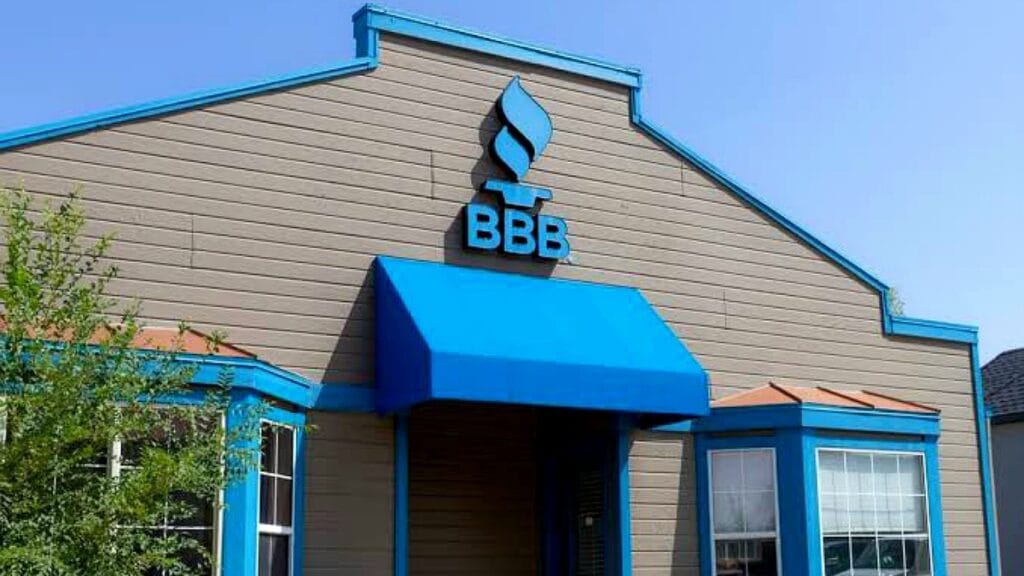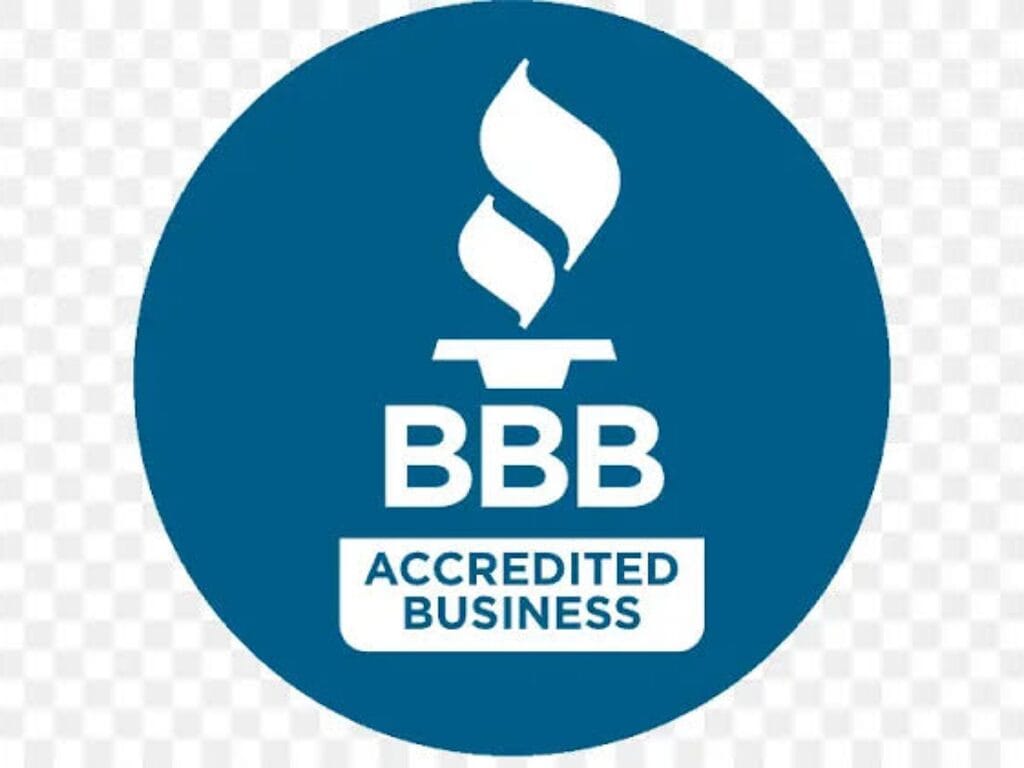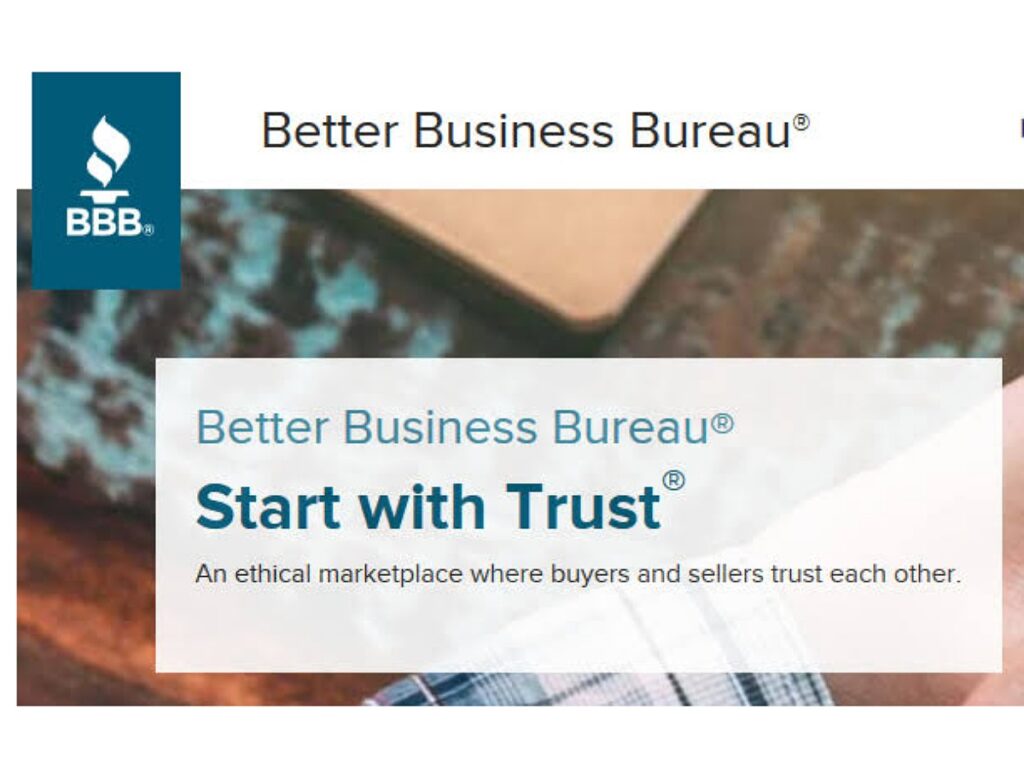Established in 1912, the Better Business Bureau (BBB) is a third-party, nonprofit organization that grades businesses based on how well they operate according to certain standards, such as consumer services and trustworthiness.

By providing accreditation through rating, the BBB promotes ethical business practices and resolves consumer complaints, enabling customers to identify reputable businesses and thus avoid fraud and scams.
Although the Better Business Bureau is useful in many ways, it is not a government agency and therefore does not have legal authority. Nevertheless, companies or businesses that acquire BBB accreditation cultivate solid consumer loyalty and trust.
The Better Business Bureau Accreditation Process
The process of BBB accreditation begins with an application through the respective local BBB chapter. After application, the BBB evaluates the business against factors such as responsiveness to consumer complaints and commitment, transparent business practices, and privacy protection, amongst others. If a company or business is approved, it is listed as a BBB Accredited entity and receives a rating ranging from A+ to F.

From that moment on, the Better Business Bureau monitors the business, rating its operations to ensure continued compliance.
Comparing Two BBB Accredited Businesses
Business 1: XCom Enterprise is a company that provides IT services and solutions to small and medium enterprises across Africa.
Year of Accreditation: 2015
Business 2: Bright Ltd is a company that also offers IT solutions across Africa.
Year of Accreditation: 2024
Despite offering the same services in a similar market, these two companies have received different ratings from the Better Business Bureau accreditation. To understand why these two companies have different ratings, here is a breakdown of the evaluation criteria:
The Better Business Bureau Accreditation evaluates businesses based on factors that reflect their trustworthiness and customer service practices, including the following:
- Complaint History (40%): This indicates the number of complaints filed against the business, how the business responds to and resolves complaints, and the time taken to address complaints.
- Type of Business (10%): This checks whether the business follows industry standards and legal regulations.
- Time in Business (5%): This checks how long the company has been operating.
- Transparent business practices (5%): This indicates the clear disclosure of essential business information.
- Failure to Honor Commitments (10%): This checks whether the business meets BBB accreditation standards.
- Advertising Practices (10%): Checks whether the business follows truthful advertising policies.
- Licensing and Government Actions (10%): This deals with the proper licensing and compliance with laws. Sometimes, BBB Accreditation (20%) (if applicable) is also considered. Furthermore, businesses that pay for accreditation are evaluated on additional criteria.
Let’s consider the two businesses mentioned herein; Xcom Enterprises and Bright Ltd.
| XCom Enterprise | Bright Ltd |
| Complaint History (38%)-Number and resolution of complaints. | Complaint History (25%) – Number and resolution of complaints. |
| Business Type (10%)-Whether it operates in industries known for unethical practices. | Business Type (10%) – Whether it operates in industries known for unethical practices. |
| Time in Business (10%) – Longevity of the company. | Time in Business (5%) – Longevity of the company. |
| Transparent Business Practices (10%) – Proper licensing and disclosures. | Transparent Business Practices (5%) – Proper licensing and disclosures. |
| Failure to Honor Commitments (10%) – Legal actions and government sanctions | Failure to Honor Commitments (10%) – Legal actions and government sanctions |
| Advertising Issues (10%) – Misleading or unethical advertising. | Advertising Issues (7%) – Misleading or unethical advertising. |
| Other Factors (10%) – Customer reviews, responsiveness, etc. | Other Factors (10%) – Customer reviews, responsiveness, etc |
| Total Score 98% | Total Score 72% |
| Rating A+ | Rating C- |
Based on the evaluation criteria highlighted above, XCom Enterprises had an A+ rating. This is because it maintains trust with the BBB by resolving issues promptly. On the other hand, Bright Ltd had a C- rating. This low rating is due to unresolved customer complaints as well a advertising concerns.
Because Xcom Enterprises has a high rating, it chooses to display the Better Business Bureau logo on its company website. Over time, more and more customers will opt for their services because they trust the rating.
On the other hand, Bright Ltd will continue to struggle to gain the same level of consumer trust as Xcom, which enjoys a competitive edge.

Benefits of BBB Accreditation to Businesses
- Credibility and Customer Trust
BBB accreditation is a strong sign that the business operates ethically. As such, businesses with high BBB ratings are more likely to attract cautious buyers who prioritize reputable companies.
- Marketing, SEO & Online Visibility
Since accredited businesses have a seal that differentiates them from competitors, a BBB listing enhances online visibility and search rankings, making it easier for potential customers to find the business.
Benefits of BBB Accreditation to Consumers
- Consumer Trust
BBB Accreditation means that a business follows best practices, including responding to customer feedback as well as resolving their concerns. As such, the BBB seal becomes a mark of trust, assuring potential customers of quality services.
- Customer Reviews
Since the Better Business Bureau accreditation allows consumers to leave reviews on the company website, it provides businesses with vital feedback that enables them to understand past customer experiences. This facilitates resolving customer complaints efficiently.
FAQs
- Is the BBB Still Relevant in Today’s Digital Age?
Although BBB accreditation is still valuable for certain businesses, especially local service providers, it’s no longer the gold standard for trust. In the digital age. Today, businesses are beginning to focus on managing online reviews, social media reputation, and direct customer engagement. As such, most e-businesses and tech companies are opting for platforms like Google Reviews and Trustpilot to build online trust and enable bigger impact on consumer decisions.
- Criticisms of the BBB: Is It Truly Unbiased?
Normally, BBB accreditation is always determined by specific factors such as time in operation, ethical business practices, transparency and customer complaints and resolution. However, there has been criticism that this system of rating favors accredited businesses which tend to have high ratings even if they do not meet the factors mentioned herein.
- How Scammers Exploit the BBB Name & How to Spot Fake Listings
In some cases, scammers can exploit the BBB accreditation, seeking to deceive customers. One of the most common ways that scammers use is creating fake companies, getting BBB accreditation, then using it to legitimize their fraud. However, to verify genuine BBB accreditation and hence avoid scam, you can go to www.bbb.org and search for the company.

